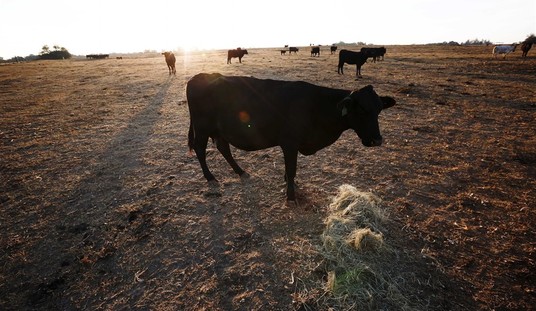The British police constable who was one of the first people to investigate grooming gangs in the city of Manchester has written a summary of her years-long battle to get the police force to take the situation seriously. Maggie Oliver had only been on the force for seven years when she learned about the case of a 15-year-old girl who had been groomed, abused and eventually killed by Mohammed Yaqoob, a 50-year-old Pakistani man who injected her with too much heroin leading to an overdose. Oliver was put on the case and quickly began to uncover the full extent of the gang's behavior.
There were three of us on the team as well as a detective inspector who was leading the day-to-day investigations. Within weeks, social workers helped us identify a group of about 100 abusers who were potentially raping dozens of children on a daily basis.
Social workers, who knew the victims well, told me the scale of the crimes, and how the gangs operated in Manchester. Almost always, the girls knew their abusers. They were men who worked as taxi drivers and at Asian restaurants, people the girls met around the community. At least one, we suspected, was a police officer. These men would park outside care facilities and wait for the girls to return from school, then persuade them to come to their homes or remote places in the countryside where they were forced to drink bottles of alcohol and take drugs. At least 26 girls were raped vaginally, anally, and orally, passed around between gangs of up to 20 men at a time. Sometimes the abusers would give the girls £10 for their troubles; other times they were forced to submit by knifepoint or gunpoint. One girl was told she would be “burned alive” if she said anything...
Through our network, we started to learn this was happening nationwide. We spoke to forces in Liverpool and West Yorkshire, and both reported the same phenomenon: networks of predominantly Muslim men of Pakistani descent who were grooming and raping underage white girls.
I discovered the gangs were in cahoots. Men trafficked girls to other towns where they knew other abusers. But for some reason, the police in these districts had also been slow to respond.
This was in 2004 and around this time, Oliver took an extended leave because her husband had been diagnosed with stage 4 cancer. After his death, she returned to work and immediately asked what had happened with the case.
As soon as I returned, I asked a senior colleague for an update on Operation Augusta. “Oh yeah,” he said offhandedly. “They’ve warned a couple of lads under the Child Abduction Act.”
In other words, a few suspects got a slap on the wrist, but no one was charged.
And that was it. The operation was shut down, allegedly because they lacked enough evidence to bring charges.
We had hundreds of pages of reports from social workers, sexual health clinics, and care home staff. We had precise locations of abuse, car registration plates, names, addresses, and testimony from witnesses with corroborating accounts. And yet not one of the 97 suspects we had gathered evidence against was charged with rape, and not one of the 26 young victims would see justice. It was as if all my life’s work and all these children’s lives meant nothing at all. Meanwhile, the abusers were still roaming free, able to target more children.
Years passed until a key to making some of the charges stick was discovered in a police evidence freezer. An aborted baby which had been collected by police after a 13-year-old victim of the gangs got pregnant. It had sat in the freezer for a year with no one making any effort to move the case forward.
Oliver continued to pursue evidence against the gangs for more than a year, brining her findings to a series of higher-up police officials all of whom seemed curiously disinterested in pursuing the case. One even threatened her about not revealing anything she knew to the media.
With nowhere else to turn, she filed a formal grievance saying the police were failing to investigate crimes. But the official response accused her of being "overemotional" about the case.
Nevertheless there was a trial held in 2012 in which 11 Pakistani men were tried and nine were eventually convicted. Those convicted got various sentences but in the UK they were mostly released after serving half their time. So the person who had raped and impregnated the teen girl whose aborted baby was found in the freezer served 4 years.
The sentences were minor and more importantly, the vast majority of rapists involved in the gang were never charged at all. Oliver quit her job in 2012 in order to tell her story to the media. She started working with a reporter at the BBC. In March of 2013 the story aired.
Listening to Ruby, Amber, and other victims talk about their ordeal made me cry all over again. Hearing my own voice was surreal and unnerving. And then I was shocked to hear the words of Chief Constable Peter Fahy, the head of the Greater Manchester Police. He said some of the victims were not credible witnesses, because they had “consented” to sex with their abusers.
A few days later, I heard Fahy on another BBC Radio program saying I’d become too emotionally involved in the case, probably because I had suffered the deaths of my husband and later, my granddaughter, who passed away at the age of 2 from a rare genetic disorder.
It wasn't until 2018 that an independent review revealed the original case had been shut down in part because no one wanted to deal with the "sensitive community issues" the case revealed. In other words, the fact that nearly all of the men involved were Pakistani and all of the girls involved were white. That and the fact that it was routine for police to refer to the 13 and 14 year-olds being groomed as "child prostitutes" or even "sex workers."
The piece ends with Oliver thanking Elon Musk for amplifying the story about this case a larger audience than had heard about it previously. She says the gangs are still operating and most of the men involved have never been charged.








Join the conversation as a VIP Member